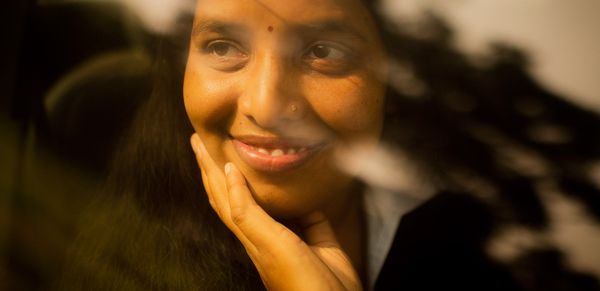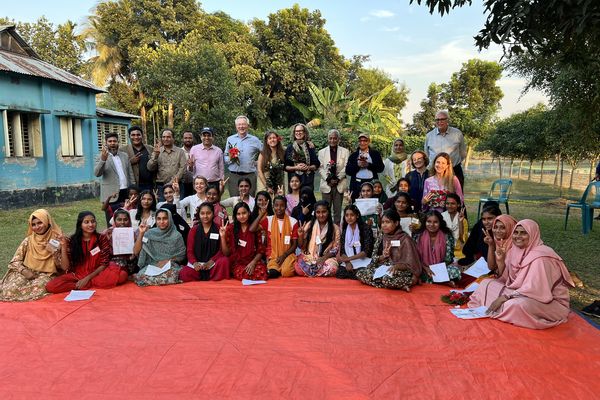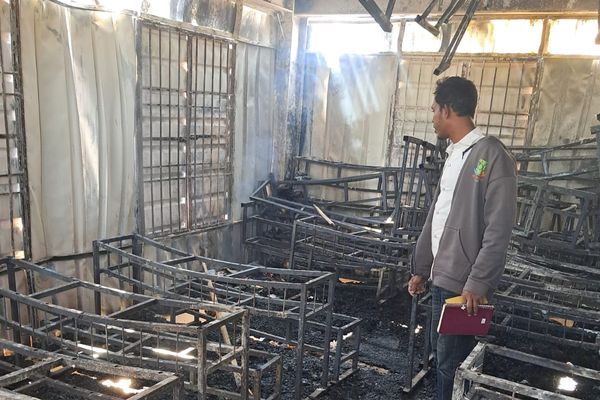I never knew my mother. She died in a fire when I was three.
Our lives changed quickly.
My father married a woman who already had two sons. I was the fifth of six sisters, and overnight, all of us girls became burdens to our new family--that now had eight children.
My Nani (maternal grandmother) took us away. I became a daughter to her, filling the void left by my mother. We were so close, I called her Ma (mother). She enrolled us in school. The problem was Nani couldn’t make many decisions for us in the house. My Nana (maternal grandfather) had two wives, and his newer, second wife made all the decisions.
She wasn’t happy that Nani had brought us to the house and wouldn’t let us have anything–even clothes. They were not struggling with money, but she wouldn’t let Nana give us anything, out of jealousy–because we were Nani’s daughter’s children.
During harvest seasons, I would come home from school every day and pick paddy (ripe rice grains). Nani would sell that to buy clothes for me.
When I was 10, my father wanted us to come back home. He feared for my safety as I was a girl and getting older. Until then I’d only visit him as a guest. We went to live with him and his family again.
My father was good, but living with my stepmother was much worse than my Nana’s second wife.
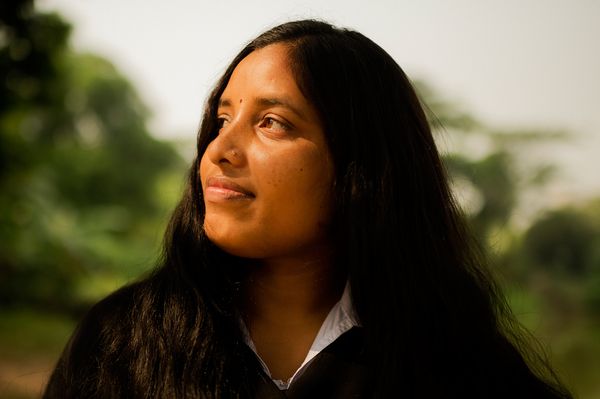
It started with scolding me for being ‘boyish’. She didn’t like that I loved riding bicycles, which I would borrow from my cousins. She made me do difficult chores. Once I cut my fingers while working, and overslept a bit the next day. The next morning she made a fuss about how I didn’t work and slept all day.
Then she stopped letting me eat. She would finish all her chores and lock the kitchen without giving me food. My aunts, hearing this, invited me to their houses to eat, but she told them off, and that stopped.
At one point, I was particularly starving. I felt it would be better for everyone if I was dead.”
Srimti
I skipped school, finished all my chores and went to the spot where my mother was buried in the field by our house. All the farmers in the field had left to eat lunch, so I was alone.
I had brought poison, the kind used as pesticide. Maybe I mixed too much water with it, or maybe it was because I hadn’t eaten in days – but my body rejected it. I tried again and again to drink it, until the bottle was empty.
I called out to my mother, “Why bring so many children into this world only to leave them like this?”
I cried and cried, until my anger faded a little and I just felt sick. I guess you can’t die if your time hasn’t come. I returned home. I told my youngest sister we didn’t have anyone in the world and we cried together for hours. Then I took her with me and set off back to Nani’s house.
We reached in the evening. My sister told Nani I had been starving, and had drunk poison.
Nani was worried. She thought it would be best to get me married. She believed that there is no happiness in rich people’s lives, and chose a man from a poor family to be my husband, Sopon Minj – a manager of a machinery store nearby.
I gave birth to a son within a few years. We decided to move to the city to see if we could find a better life. I worked as a security guard for a month, and then one day, one of my neighbors told me about a training program for drivers.
Driving a car as a woman? I was unsure. “Get the license at least,” Sopon said. The training was free, and I’d be learning a new skill that could always be useful. It took him two months to convince me. What eventually changed my mind was when he said that if something ever happened to him, he wanted me to be self-sufficient. Those words hit me.
I was overwhelmed on the road to the training center, across the bustling city–passing flyovers, hundreds of cars, buses and trucks. I didn’t think I could do it. “Just try!” he kept telling me. He was the first to call home with the news when I passed my interview.
I trained for three months, obtained my license, and got a job as a driver for BRAC. Sopon was proud that I could do something he couldn’t. He started learning, too. Nani was ecstatic when she heard about my job.
There were many people who didn’t believe it. They said, “Some men can’t even drive! You expect us to believe you drive a car? You can get away with saying anything from Dhaka.””
Srimti
As part of the onboarding process, someone from BRAC visited my in-law’s house for verification. They asked about me and showed them my picture. Everyone knew I had told the truth after that. My relatives were inspired to encourage their daughters to pursue such opportunities. I connected many of them with jobs. I was at the interview board again--this time as an interviewer.
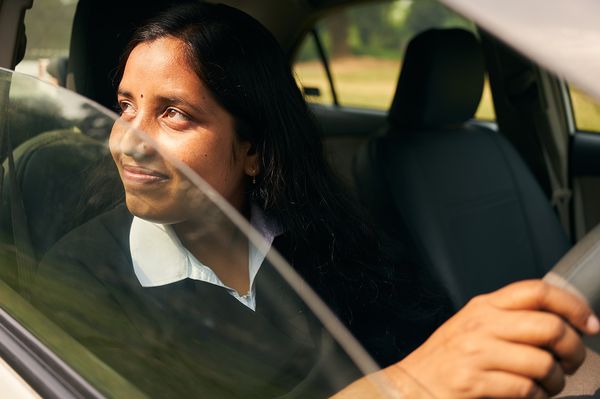
My job isn’t easy.
Drivers on the road often get really close. People glare when I don’t let them cut queues to get in my lane. I often get asked if there is anyone else who can drive instead--not at BRAC, but at other organizations that I come into contact with.
I remember the first time I drove into Dhaka Cantonment. Soldiers saluted me! It was protocol, but it made me feel like I was doing something good. I get saluted at airports, too.”
Srimti
My sons Shibraj and Debraj have started their schooling in Dhaka this year. I have taken them out for drives a couple of times, which they loved.
They’re so proud of me that they brag to friends back in the village: “My mom can drive! Can your mom drive?”
My stepmother didn’t have much to say to me the last time I visited my father’s house. She couldn’t hold me back.
My sisters and I went through so much, yet we were blessed with enough support to always find a way forward.
Srimti Banita Khalko is a trained driver from BRAC driving school in Bangladesh.
